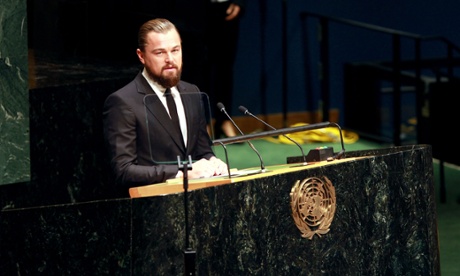
In the Friday night television wasteland, Ben Affleck grabbed headlines by doing what many Americans refused to do even when faced with piles of evidence and growing body counts: call a prominent person out for “gross” and “racist” statements.
But why did Affleck get so much attention for calling out Maher’s leftwing flavored Islamophobia? Reza Aslan, Rabia Chaudry and others have publicly discussed Maher’s beef with “the Muslim world” – why were Affleck’s comments the firestarter?
The simple answer: because Affleck isn’t Muslim. He is considered, in popular consciousness, to be “neutral” in this issue, so his impassioned defense against stereotyping resonated more powerfully. More people were inclined to listen when it comes from Affleck.
Celebrity activism is moving away from the publicity-focused photo ops as we see more celebrities get involved with causes on an intimate level. Instead of just joining an established charity, more and more stars are starting their own foundations and NGOs to address complicated issues.
But the sad reality is that attention still follows a script in our society: white men are encouraged to champion anything and everything, while women and people of color are encouraged to discuss issues that are closer to their gender and racial identity.
The bias here isn’t clear-cut – certainly, many celebrities choose issues that are personally important to them. But examining the subtle ways in which attention is given to certain speakers and topics should give any discerning reader some pause.
Leonardo DiCaprio, an eco-warrior since he hit the Hollywood scene, began redefining the rules of celebrity activism by taking a high-low approach to fundraising. As an individual, DiCaprio attended and tweeted about the People’s Climate March. As a celebrity with a platform, DiCaprio sponsored an art auction to conserve the environment in 2013, netting close to $38m from other high-earning stars. This year, DiCaprio addressed the United Nations, again stressing the need for conservation of and action on the environment.
Another celebrity also took the podium at the UN to discuss human rights: Emma Watson. The United Nations goodwill ambassador for women launched her new campaign HeForShe asking men to stand up for women’s rights as allies.
The reception to her speech was mostly positive, but it is hard to imagine Time magazine running a counter-editorial with a dismissive “Sorry, Leonardo DiCaprio” headline they way they did for Watson. Could some of the disparities be due to the nature of the topics? Of course. But much of the news around DiCaprio’s speech was that it happened and his remarks; much of the commentary around Watson’s speech questioned if her points were valid.
More interesting is when we add race and gender into the mix. Kerry Washington lends her powerful voice to a variety of causes. Before Scandal made Washington a household name, the Hollywood star spoke out against environmental racism and paid specific attention to the racial disparities in eco-activism.
But her remarks weren’t as widely spread as DiCaprio’s. And media coverage of Washington’s points consisted of magazine spreads covering Washington’s eco-chic lifestyle. The actress often refers to her race, her gender, and her heritage as the daughter of immigrants to illustrate her activism as she did during the Democratic national convention in 2012 while addressing the decidedly unsexy issue of voter apathy.
More recently, Washington’s activism has focused on women. She joined V-Day: a Global Movement to End Violence Against Women. Her latest campaign, for the Purple Purse Project, raises awareness around financial abuse in relationships. Washington is not afraid to use her platform or her voice. But does she get the same kind of consideration as someone like Matt Damon?
Damon has committed to the world’s struggle for water through co-founding water.org. He made headlines by staging a mock press conference for World Toilet Day in which he pledges not to use the bathroom and encouraged others to join the toilet strike.
But his commitment to water goes back even further, where Damon lampooned celebrity culture on the HBO bro-comedy Entourage and sent millions of eyes to the OnexOne campaign.
This is a clear example of Damon using his celebrity to further what is considered a global good. But why is global automatically considered more serious and important than the national and local? Where were the demonstrations and mock press conferences when thousands of people in Detroit faced water shutoffs? A panel of experts from the United Nations said in a release that the continued actions were “a violation of the human right to water and other international human rights.” But celebrities did not rally to this specific cause.
Often, this less glamorous, locally focused work is done by celebrities of color, who spend years working on smaller scale campaigns that have an outsized impact in communities of color.
Rosario Dawson spent the last decade promoting and co-founding Voto Latino with Maria Teresa Kumar, registering nearly a quarter million young Latinos and creating a new class of engaged voters. Eva Longoria parlayed her Desperate Housewives fame into political action – an outspoken supporter of Democratic issues, she recently launched the Latino Victory Political Action Committee to support Latino representation in the halls of Congress.
This type of activism isn’t new, but rather a return to the idea of a personal cause. The new surge in celebrity activism isn’t surprising. Unfortunately, in an attention economy, all causes (and all people) are not seen as equal.

